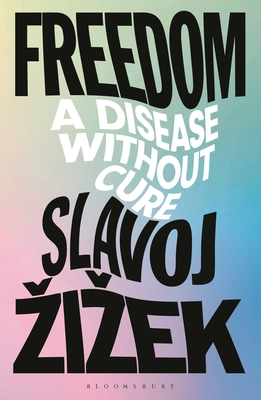
We are all afraid that new dangers pose a threat to our hard-won freedoms, so what deserves attention is precisely the notion of freedom. The concept of freedom is deceptively simple. We think we understand it, but the moment we try and define it we encounter contradictions. In this new philosophical exploration, Slavoj Žižek argues that the experience of true, radical freedom is transient and fragile. Countering the idea of libertarian individualism, Žižek draws on philosophers Hegel, Kierkegaard and Heidegger, as well as the work of Kandinsky and Agatha Christie to examine the many facets of freedom and what we can learn from each of them. Today, with the latest advances in digital control, our social activity can be controlled and regulated to such a degree that the liberal notion of a free individual becomes obsolete and even meaningless. How will we be obliged to reinvent (or limit) the contours of our freedom? Tracing its connection to everything from capitalism and war to the state and environmental breakdown, Žižek takes us on an illuminating and entertaining journey that shows how a deeper understanding of freedom can offer hope in dark times.
Author

Slavoj Žižek is a Slovene sociologist, philosopher, and cultural critic. He was born in Ljubljana, Slovenia (then part of SFR Yugoslavia). He received a Doctor of Arts in Philosophy from the University of Ljubljana and studied psychoanalysis at the University of Paris VIII with Jacques-Alain Miller and François Regnault. In 1990 he was a candidate with the party Liberal Democracy of Slovenia for Presidency of the Republic of Slovenia (an auxiliary institution, abolished in 1992). Since 2005, Žižek has been a member of the Slovenian Academy of Sciences and Arts. Žižek is well known for his use of the works of 20th century French psychoanalyst Jacques Lacan in a new reading of popular culture. He writes on many topics including the Iraq War, fundamentalism, capitalism, tolerance, political correctness, globalization, subjectivity, human rights, Lenin, myth, cyberspace, postmodernism, multiculturalism, post-marxism, David Lynch, and Alfred Hitchcock. In an interview with the Spanish newspaper El País he jokingly described himself as an "orthodox Lacanian Stalinist". In an interview with Amy Goodman on Democracy Now! he described himself as a "Marxist" and a "Communist."